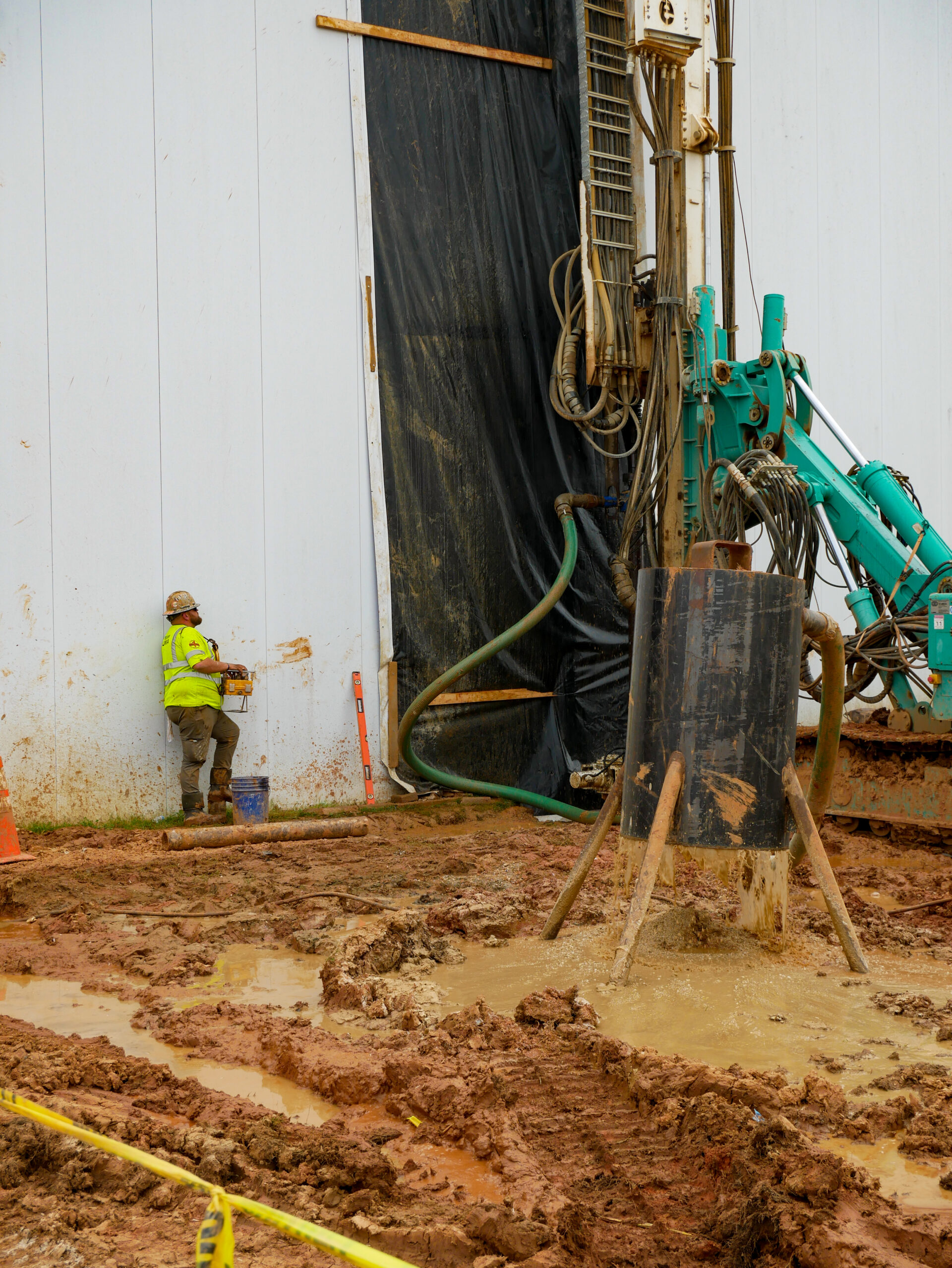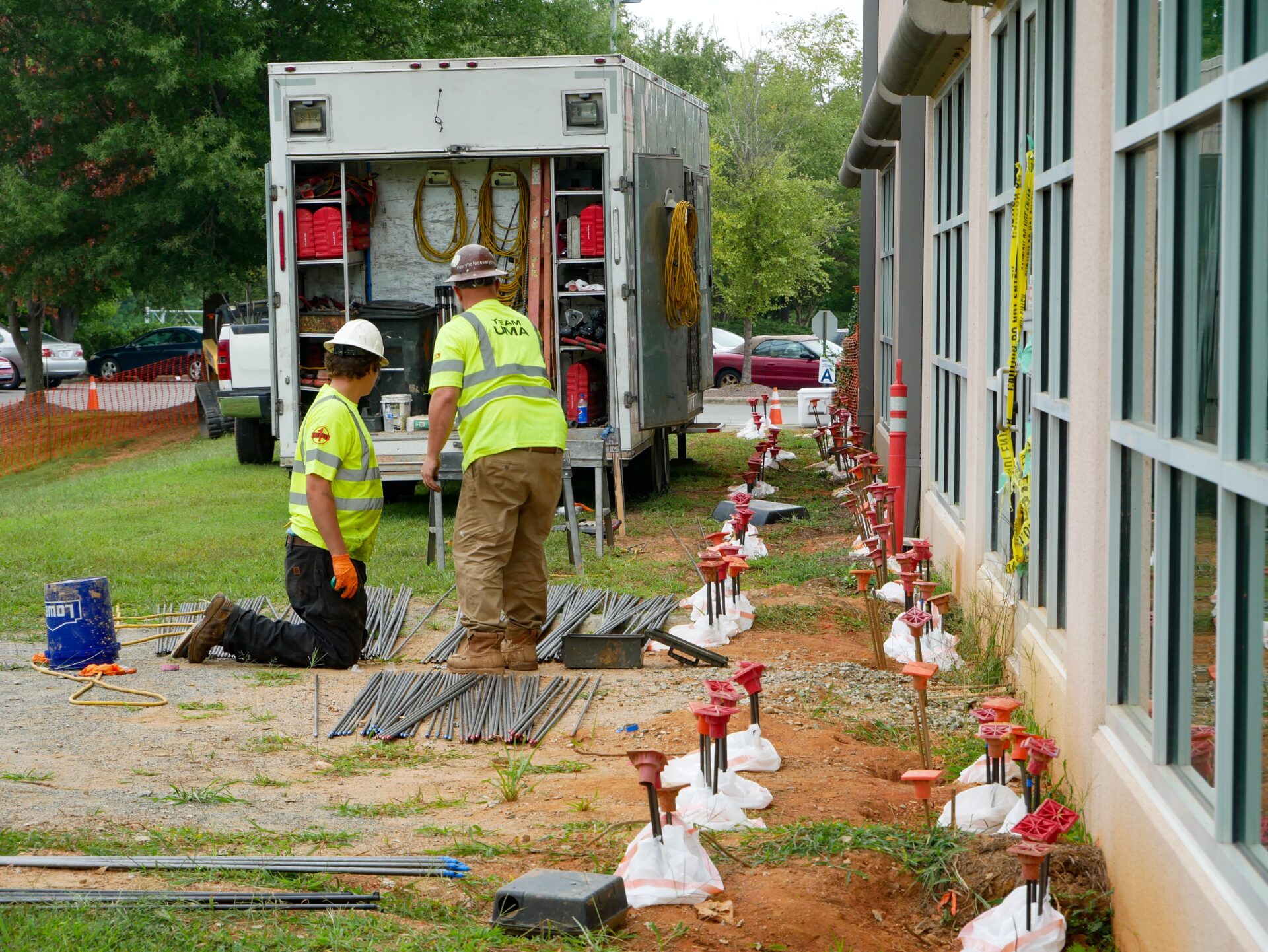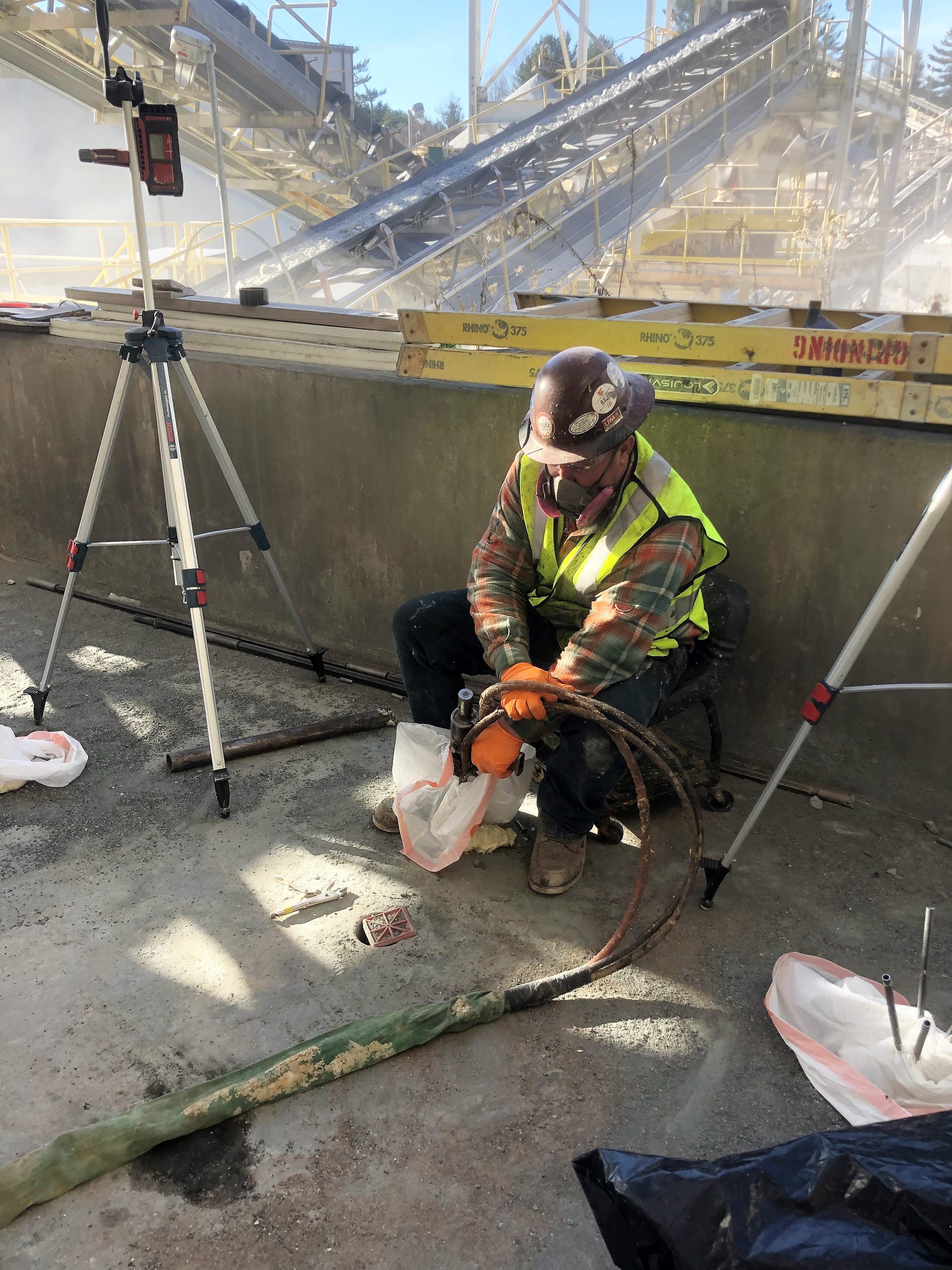UMA Installs Tieback Anchors at USMC Bombing Range
Cherry Point, North Carolina
Imagine installing tieback anchors to repair a bulkhead with U.S. military aircraft conducting live-fire training nearby. That’s exactly what we did at North Carolina’s Piney Island, better known as Bombing Target (BT) 11. Cherry Point’s premier bombing range provides unique training opportunities, including bombing targets, to America’s warfighters from various branches of the military
UMA installed strand tieback anchors through the new concrete cap (done by others) at 16 locations. Our team staged work and materials on a barge as we’ve done on past projects at BT-11 due to the configuration of the drill used to install these anchors.
Past experience at Cherry Point doing similar tieback installations combined with provided geotechnical information led us to propose a 3-strand multiple corrosion protected strand anchor with a slightly longer-than-specified bonded length. This knowledge of practical soil performance gave us an advantage when negotiating the bid and construction.
Based on our preliminary design, UMA required a minimum 7-inch diameter drilled hole. All tieback locations required a PVC block out to be installed during construction at the required angle for the tieback installation. We post grouted each anchor to improve the grout-soil bond and ensure that the required tension capacity was met. Post grouting allows for a higher range of bond values when compared to traditional tremie grouting.
Based on the provided specification, UMA included proof testing, lock-off, and lift-off testing for all of the anchors. We also included one sacrificial verification test to be installed and tested per the specification by a cyclical load test. Sacrificial anchors are typically not used in PTI (Post-Tensioning Institute) Guidelines due to cost, but a project for the Marines requires the upmost attention to details and safety.
At the end of the day, BT-11 is a place that fine-tunes the skills of our military pilots as they target foreign adversaries. As a Service-Disabled Veteran-Owned Small Business (SDVOSB), military construction projects like this that help to keep America safe have special meaning for us.



